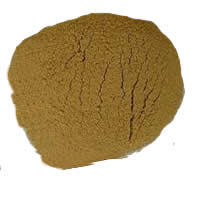Agaricus Mushroom Purchase & Information

Alternative Names
Agaric, Agaric Bispore, Agaricus, Agaricus Bisporus Mushroom, Agarikusutake, Brazil Mushroom, Brazilian Mushroom, Brazilian Sun-Mushroom, Callampa Agaricus, Champignon Agaric, Champignon Brésilien, Cogumelo do Sol, Champignon du Brésil, Kawariharatake, Himematsutake, Mushroom, Sun Mushroom
Scientific Name
Agaricus Blazel Murill
Why Do People Use Agaricus Mushroom?
Agaricus mushroom is used for cancer, diabetes, hyperlipidemia, arteriosclerosis, chronic hepatitis, and bloodstream and digestive problems. Other uses include prevention of heart disease, osteoporosis, and gastric ulcers. It is also used as an antioxidant, anticarcinogen, and immunostimulant, and for physical and emotional stress.
In Japan, extracts of the mycelium and fruit bodies are approved as a food additive.
Is It Safe To Use?
Possibly Safe - When used orally and appropriately. Agaricus mushroom extract has been safely used in studies lasting up to 12 weeks. A specific agaricus blazei murill powder has been safely used in doses up to 5.4 grams daily for 6 months.
Pregnancy and Lactation - Insufficient reliable information available; avoid using.
How Effective Is Agaricus Mushroom?
Possibly effective for the following conditions:
Diabetes - Some clinical research shows that an agaricus mushroom extract, in combination with metformin and the sulfonylurea gliclazide (Diamicron, Canada; not available in the US), decreases insulin resistance more than metformin and gliclazide alone in patients with type 2 diabetes. People taking adjunctive agaricus mushroom extract had lower fasting insulin levels than patients taking metformin and gliclazide alone, suggesting less insulin resistance.
Chemotherapy - Preliminary evidence suggests that an agaricus mushroom extract might improve some of the adverse effects of chemotherapy, such as generalized weakness, decreased appetite, and emotional instability. More evidence is needed to rate agaricus mushroom for this use.
How Agaricus Mushroom Works?
The applicable parts of agaricus mushroom are the mycelia and fruiting body. Agaricus mushroom contains polysaccharides, proteoglycans, polysaccharide-protein complexes, glycoproteins, and steroids. The dehydrated mushroom contains proteins, carbohydrates, fibers, lipids such as linoleic acid, and B vitamins such as thiamine, riboflavin, and niacin. It also contains ergosterol, which is a vitamin D precursor, and potassium.
Preliminary research suggests agaricus mushroom might have immunostimulant effects. In vitro and animal research suggest it might enhance the production of cytokines such as interferon and interleukin. Fractions of agaricus also seem to stimulate monocyte production of interleukin-12 and result in anti-tumor activity in vitro. Extracts of agaricus mushroom, particularly beta-glucan extracts, also have anti-tumor and immunostimulant effects in animal models.
There is interest in using agaricus mushroom as a biologic response modifier (such as interferon or interleukin-2) as an adjunct to chemotherapy. Agaricus mushroom is thought to enhance natural killer cell activity and potentially reduce some side effects of chemotherapy.
Ergosterol and sodium pyroglutamate constituents of agaricus mushroom might have antiangiogenic effects on tumors.
Agaricus mushroom might have antidiabetes activity by increasing serum adiponectin, which decreases insulin resistance in humans with type 2 diabetes.
What Are The Side Effects /Adverse Reactions of Agaricus Mushroom?
Orally, agaricus mushroom is usually well-tolerated. Mild gastrointestinal side effects such as nausea and diarrhea have been reported. In type 2 diabetes patients taking conventional oral hypoglycemic agents, agaricus mushroom has been associated with occasional episodes of hypoglycemia and pruritus.
Three cases of severe hepatotoxicity have been reported in women with ovarian or breast cancer receiving chemotherapy, who also took agaricus mushroom supplements. Two of the women had increases in liver function tests a few days after starting agaricus mushroom, and then progressed rapidly to fatal, fulminant hepatitis. One of these women was also an asymptomatic carrier of hepatitis B virus. In the third case, liver function improved when agaricus mushroom was stopped, worsened when it was restarted, and then recovered fully when the supplement was stopped permanently.
How Agaricus Mushroom Interacts With Other Herbs and Supplements?
Herbs and Supplements - Some evidence suggests that agaricus mushroom might lower blood glucose levels by decreasing insulin resistance in type 2 diabetes patients. Theoretically, agaricus mushroom might have additive effects with other herbs and supplements that decrease blood glucose levels.
Some herbs and supplements with hypoglycemic potential include devil's claw, fenugreek, guar gum, Panax ginseng, and Siberian ginseng
How Agaricus Mushroom Interacts With Drugs?
Antibiotic Drugs - Some evidence suggests that agaricus mushroom might lower blood glucose levels by decreasing insulin resistance in type 2 diabetes patients. Theoretically, agaricus mushroom might have additive effects when used with antidiabetes drugs. Monitor blood glucose levels closely. Dose adjustments might be necessary.
Some antidiabetes drugs include glimepiride (Amaryl), glyburide (DiaBeta, Glynase PresTab, Micronase), insulin, pioglitazone (Actos), rosiglitazone (Avandia), and others.
How Agaricus Mushroom Interacts With Foods?
None known.
How Agaricus Mushroom Interacts With Lab Tests?
None known.
How Agaricus Mushroom Interacts With Diseases and Conditions?
Liver Disease - There is some concern that agaricus mushroom might cause or exacerbate liver disease. Avoid agaricus mushroom in people with liver disease.
Surgery - Agaricus mushroom can possibly affect blood glucose levels. Theoretically, agaricus mushroom might interfere with blood glucose control during and after surgical procedures. Discontinue agaricus mushroom at least 2 weeks before elective surgical procedures.
What Should Be the Dose/Administration of Agaricus Mushroom?
ORAL For diabetes, agaricus mushroom extract 500 mg three times daily has been used
Comments
Agaricus mushroom originated in Brazil, but is now produced commercially in China, Japan, and Brazil. It is used medicinally and consumed as food and tea.
General Certificate of Analysis (COA)
Specification sheet links below are a standard copy of the COA less the batch or lot number and manufactures dates. Specification sheet can be dated and should only be considered as a general information. Please contact and request an up to date COA if needed for specific updated information before placing order by filling out the contact form with product name and SKU number. If ordering quantities of twenty five kilos or more contact for availability.
